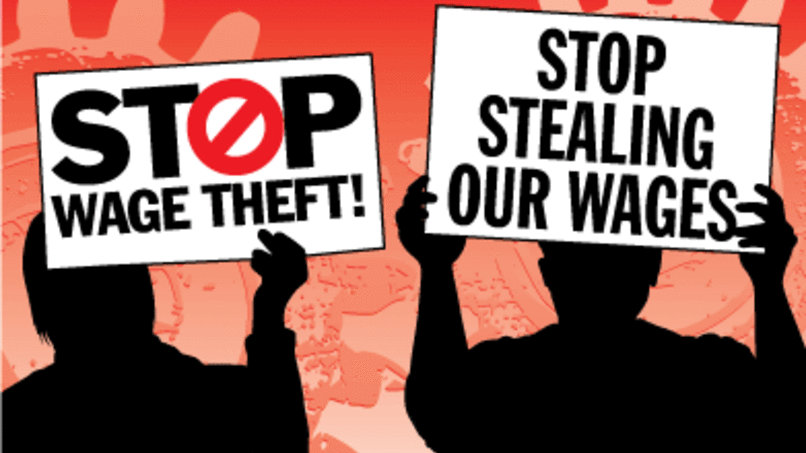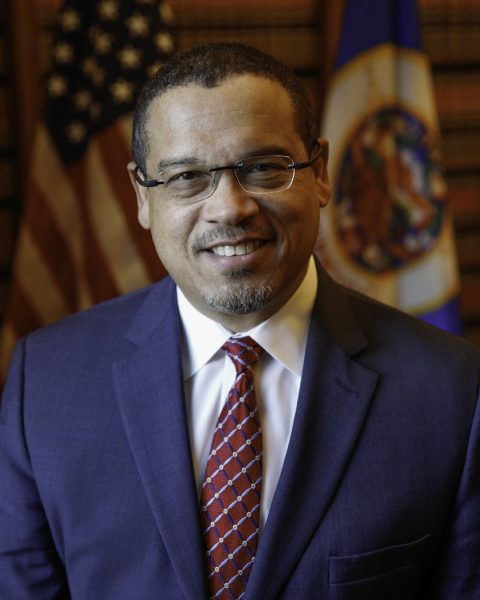

Share
 Frankly, I was shocked.
Frankly, I was shocked.
Here I was, listening to a man through an interpreter describe how the paycheck that he worked so hard for at fairly low wages was delivered to him in a debit card. He didn’t get a regular paycheck or a check stub of any kind: he was told that this debit card represented his pay and that the pay had been deposited for him.
It was hard for him to figure out how much he had actually gotten paid. When he did, he found that he had lost as many as three days’ wages even though he had worked hard every single day.
He’s not alone. Kevin’s restaurant didn’t pay him for the time he spent setting up and cleaning his work station as a cook. Emilio was told that his Sunday shift at a convenience store was “volunteer time.” Marfa’s employer withheld her wages and her passport; when she got her passport back, she was tricked into signing a document that said she had been paid when she hadn’t been.
Gonzalo, a construction worker, has had at least $1,000 a year stolen in wages – for each of the last eight years. Now, he just budgets for it.
These folks are all victims of wage theft. Wage theft takes many forms: having hours shaved off your paycheck; being forced to work off the clock; not getting paid for overtime; being paid at a lower rate than promised, sometimes below minimum wage; being paid in cash or other forms, with no Social Security, unemployment, or worker’s comp withheld; being misclassified as an independent contractor; and more.
I was shocked for two reasons. First, I honestly didn’t know wage theft happens. As much solidarity as I felt with hard-working people, I had never spent a day working hard for which I didn’t get the pay I was promised.
I was also shocked at the frequency with which wage theft happens. Reputable studies from several years ago estimate that two-thirds of all low-wage workers in the country have experienced at least one form of wage theft. The amount of wages stolen each year in Minnesota may be in the hundreds of millions of dollars: nationally, the Economic Policy Institute has estimated that $50 billion a year is stolen in wage theft. That’s more than three times the value of all the goods stolen through robbery, burglary, larceny and auto theft combined.
Those estimates are 5-10 years old now. In an economy that’s gotten more and more predatory, it’s surely only gotten worse.
One reason people don’t know wage theft happens is because employers often retaliate or threaten to retaliate against people who report it. Another reason is that wage theft commonly happens in the shadows, to the most vulnerable among us, especially immigrants, people of color, and young people. African American workers are three times more likely to have had their wages stolen than white workers, and Latina/o workers are four times more likely. The predators who steal from these folks do so because they figure they’re the least likely to report it.
Too often, wage theft is connected to criminal abuse. According to human-rights advocates, every case of human trafficking also involves wage theft. If you find people being trafficked, you’ll find people whose wages are being stolen. That’s happening right here: in Hennepin County, a contractor has been charged with human trafficking, insurance fraud, and undocumented wage theft. The charges claim that “he knew the men that he had employed were undocumented workers and used that knowledge as leverage to force them to work long hours for less than market pay and without adequate safety protection,” and that “when workers were injured, he told his employees that they would lose their jobs and be deported if they sought medical attention.”
If you do get paid every penny you’ve earned – and I hope you do – wage theft still affects you. We’re all paying higher payroll taxes to cover this fraud. Legitimate companies who play by the rules and the people who work for them lose business because they can’t compete against companies that steal money from their workers and the government. Every dollar these thieves don’t pay in taxes is a dollar that isn’t going to pay a teacher or a nurse or a laborer building a road that benefits of all of us. And the money being stolen from workers is money that’s not going back into the local economy.
In short, if American workers are a ship trying to sail forward in ever rougher seas, wage theft is a dragging anchor holding them back.
Fortunately, we can do more to help. I strongly support a bill at the Legislature – HF 6, authored by Rep. Tim Mahoney, a union pipefitter, and SF 1933, authored by Sen. Bobby Joe Champion – that will give us more tools and resources to charge people with the crime of wage theft and prosecute it more aggressively. It also creates protections for workers who come forward, and imposes higher penalties on unscrupulous employers. And because wage theft is often a sign of other abuse, this bill will also make it easier to uncover and prosecute criminal behavior like denial of medical treatment, fraud and human trafficking. I encourage you to contact your legislators and ask them to support it.
In addition, I’m starting a new unit in the Attorney General’s Office that will focus exclusively on investigating and prosecuting wage theft and other abuse of workers. If HF 6 passes, it will give us many more tools to protect workers, recover wages and hold offenders accountable.
The principle that you should get paid for every hour you worked and every penny you earned is common sense. No one should be against that. But as the Minnesota Legislature heads into the final stretch, one of the biggest problems we face in fighting wage theft is that too many people still don’t believe it actually happens.
Our job is to speak the truth about wage theft and how it hurts all of us. That’s what I’m doing. I’m asking you to join me.
– Keith Ellison has been serving as Minnesota’s Attorney General since January 7, 2019. As the People’s Lawyer, his job is to help Minnesotans afford their lives and live with dignity and respect. Before becoming Attorney General, he represented Minnesota’s 5th Congressional District in the U.S. House of Representatives for 12 years.

